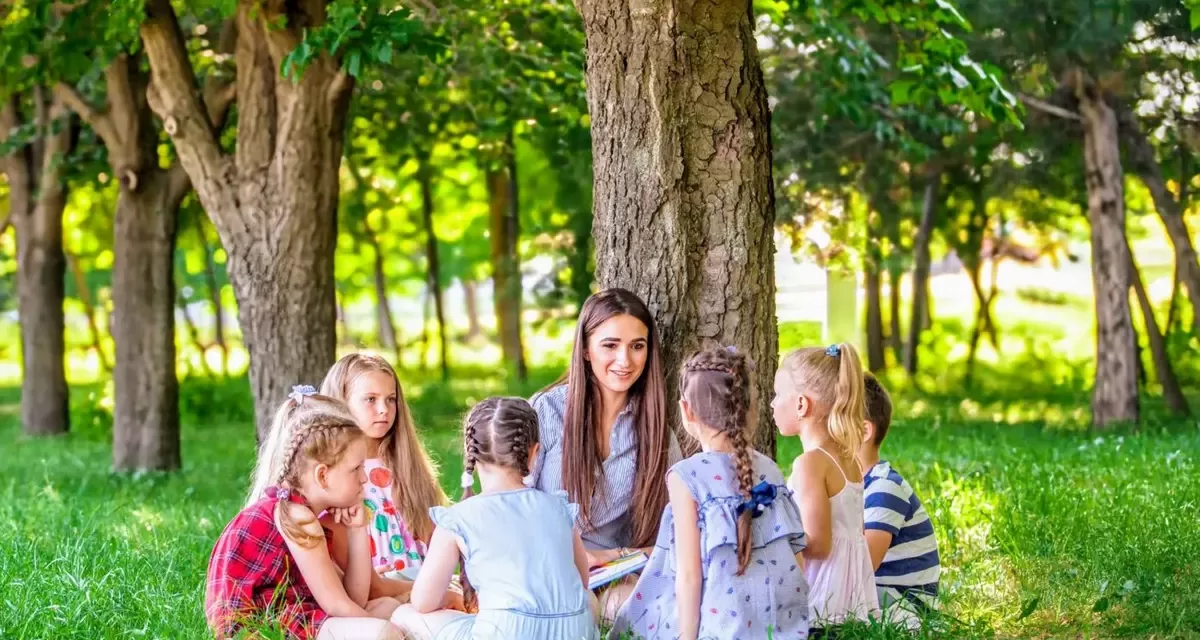Quebec schools embrace nature-based education to foster well-being
“Go outside and play!” – a phrase many of us grew up hearing, but now, it’s not just playtime that is heading outdoors. In an innovative shift, schools across Quebec are taking class time outside, providing children with a new learning experience grounded in nature. Backed by research, this approach is proving beneficial for children’s mental health, especially for those struggling with emotional distress.
Nature as a Tool for Learning and Healing
The initiative is rooted in a study led by Sylvana Côté from the Observatoire pour l’éducation et la santé des enfants (OPES), along with researchers from McGill University and Université de Montréal. The groundbreaking research highlights that spending just two hours a week in natural settings can significantly improve mental health outcomes for children, particularly those aged 10-12, who have struggled with anxiety, depression, or social issues.
Côté’s study demonstrates the powerful impact nature can have on children’s emotional well-being. The findings coincide with a recent UNICEF report, which underscores the importance of green spaces for fostering healthy childhood development.
Transforming Mental Health Through Nature
The study, which took place in the spring of 2023, involved over 500 schoolchildren from Quebec. The results showed a marked reduction in mental health symptoms such as anxiety, aggressiveness, and impulsivity in children who participated in outdoor classes. The children who experienced the greatest benefits were those who had previously struggled with significant emotional challenges.
Post-intervention, teachers observed a shift in their students: a new calmness, attentiveness, and focus. According to Marie-Claude Geoffroy, the study’s senior author and an associate professor at McGill University, these positive changes were especially evident in children who had higher levels of mental health concerns before the intervention.
“Children with higher mental health symptoms at baseline showed greater reductions in symptoms following the intervention,” said Geoffroy, who is also Canada Research Chair in Youth Mental Health and Suicide Prevention at the Douglas Research Centre.
A Practical Approach to Mental Health Support
The research team’s approach was both simple and effective: take classroom activities, such as math, science, and language lessons, outdoors. The sessions were structured with a short, 10-15 minute mental health activity designed to boost well-being. Teachers, equipped with materials from the research team, integrated these practices into their lessons, providing students with an innovative and supportive learning environment.
The intervention, which was low-cost and easy to implement, was well-received by both teachers and students. It posed no significant risks and demonstrated a clear, positive impact on the children involved.
A Broader Vision for Education and Mental Health
Tianna Loose, a post-doctoral fellow at Université de Montréal and the study’s first author, sees great potential in this approach for the future of education. “The intervention was well-received and poses no risks, making it a promising strategy for schools with access to green spaces,” she said. Loose believes this research could pave the way for similar programs in other regions, especially as schools and educators seek effective methods to support students’ mental health.
Moreover, the research team plans to follow up with a study focused on teenagers, exploring how outdoor classes might reduce climate anxiety, foster a deeper connection to nature, and further enhance mental well-being.
The Future of Education: Nature as a Classroom
The success of outdoor classes not only offers a new strategy for improving children’s mental health but also reshapes the way we think about education. As the study demonstrates, nature can be a powerful tool for both learning and healing.
As we continue to face the challenges of modern childhood, especially in the aftermath of the pandemic, it’s clear that the “best classroom is roofed only by the sky.” This innovative approach to education is a reminder of the boundless potential that nature holds, not just for academic learning but for nurturing the mental health of future generations.
The study is published in the journal JAMA Network Open.











